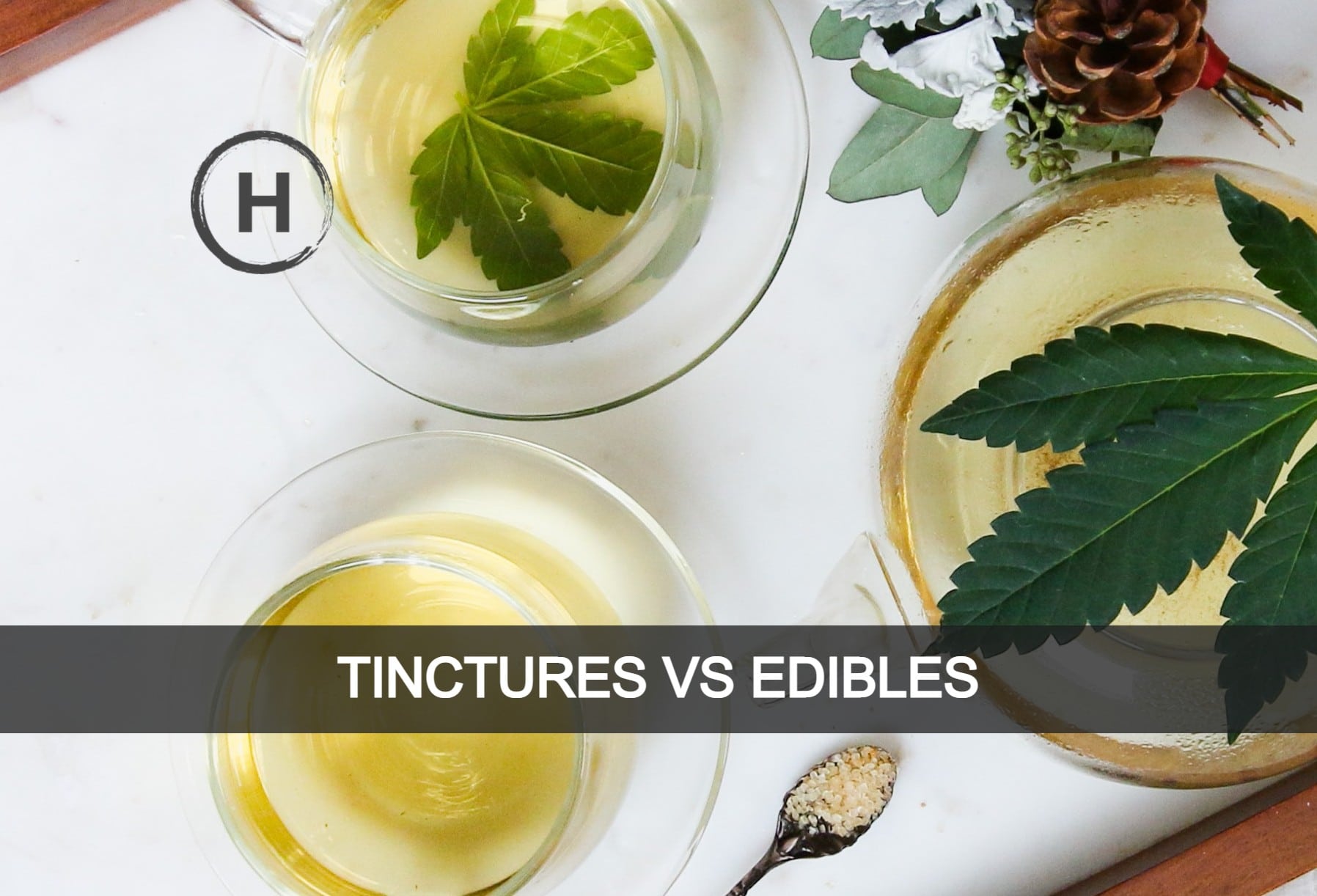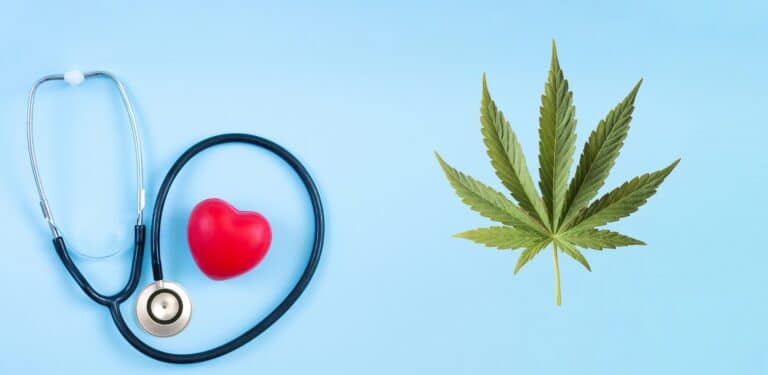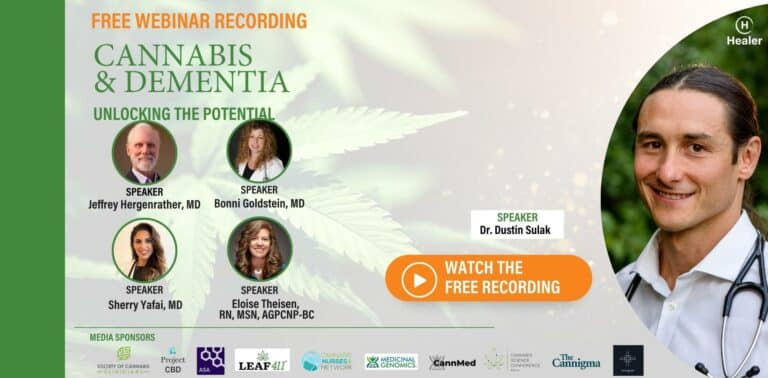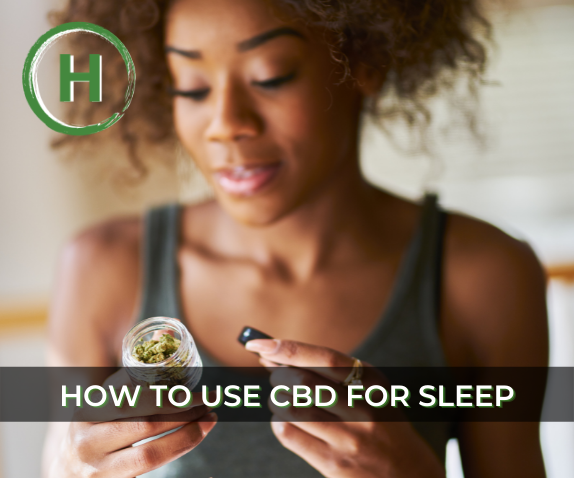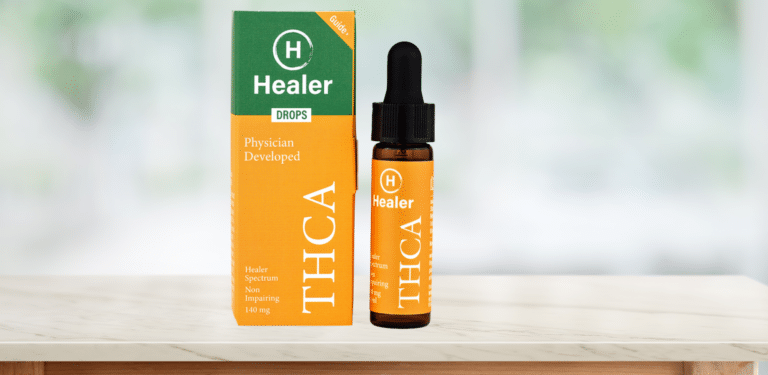Tinctures and edibles are great products for people who want to add cannabinoids to their wellness regimen but prefer to stay away from inhaling vapor or smoke. Here is an overview of cannabis tinctures vs edibles, including a comparison between the effects of each.
What is a cannabis tincture?
Cannabis tinctures are typically liquid products that are created by extracting the medicinal compounds, including cannabidiol (CBD) and tetrahydrocannabinol (THC), from cannabis and then dissolving those valuable elements in a carrier oil. Even though the word “tincture” technically refers to an alcohol-based cannabis extract, most cannabis tinctures will use a carrier oil like MCT oil or coconut oil unless otherwise specified. For example, Healer Cannabis Drops and Healer CBD, CBDA and CBG Drops are made by infusing extracted cannabinoids with organic MCT coconut oil. Healer tinctures (called Healer Drops) are highly concentrated, which means users can measure and be precise on how much they are taking because 1 drop is equal to 1 mg of total cannabinoids.
“Tinctures and infused oil drops are cannabis’s most underutilized, underrated, and under appreciated form,” according to Healer Co-founder Dr. Dustin Sulak. The benefits of cannabis tinctures include:
- Easy to measure precisely, allowing you to find the smallest amount that is effective for managing your symptoms
- Delivering more of the plant’s therapeutic compounds, especially the raw, acidic cannabinoids such as CBDA, CBGA, and THCA
- Faster onset when taken sublingually because they’re absorbed directly into the bloodstream through the capillaries in the mouth
- Convenient and discreet to use
- The most cost-effective method for taking cannabinoids since you absorb most of them and none is wasted by consuming too much or lost going up in smoke.
- Compared to edibles, tincture users often do well with lower dosages, likely due to better absorption and faster onset.
What is an edible?
By contrast, cannabis edibles are edible, ingestible products that have been infused with cannabinoids. Edibles can be anything from chocolates, gummies, and hard candies to savory foods and beverages. A cannabis tincture can also be added to foods or drinks to create an edible. Cannabis capsules work similarly to edibles. Edibles can be made by simply adding ground cannabis flower to a recipe, though the taste and texture is less than ideal. Most modern edibles are made with cannabis extracts. Depending on the recipe and required cooking time, most edibles contain fully decarboxylated cannabis and therefore don’t provide the valuable acidic cannabinoids.
The effects of tinctures vs edibles
The biggest difference between edibles and tinctures is the way in which our bodies process them. These cannabis products can yield different experiences due to the onset time and the duration of the effects.
Timing of effects
One of the primary benefits of tinctures is that you will feel the effects quicker than edibles, especially if held in the mouth for 1-5 minutes before swallowing. When you consume an edible, food and cannabinoids are broken down in the digestive tract and must be processed by the gut and liver before being distributed to the rest of the body, sometimes a slow process. Edibles may take up to an hour or two before the onset of therapeutic effects, while tinctures may provide benefits in as little as 15 minutes.
Duration of Effects
In general, the effects of edibles may last a little longer than the effects of a tincture. This is because ingested cannabinoids move through bodily systems and are metabolized a bit slower. Sublingually dosing a tincture means the cannabinoids enter your bloodstream faster and in some cases more effectively, but this also means the effects may not last quite as long. The effects of edibles can last anywhere from four to twelve hours; tinctures effects tend to last between three and eight hours when dosed appropriately.
A portion of one’s tincture dose will be swallowed and have to follow the same digestive path as the edible, which can provide the best of both worlds, especially if taken around the time of a fat-containing meal or snack: faster onset with prolonged effect.
Dosing cannabis tinctures & edibles
Both tinctures and edibles can be accurately dosed, but edible users often report more variability in onset, intensity, and duration of effects, even when taking the same dose on different occasions. These erratic effects are likely due to differences in digestive function and diet from one day to the next. Tinctures tend to produce more reliable and reproducible results.
One’s ideal dose of THC can vary with either type of product depending on several individual factors that can be hard to predict if you have no previous experience with cannabis. That’s why Dr. Dustin Sulak developed free dosage programs to help you find your individualized, optimal dose.
Even though every person will have their own dosage needs, there are some general guidelines to consider. For example, doses between 1 and 2.5mg work well for mild symptom relief, while higher doses of 2.5mg of THC would be best for stronger symptoms and more experienced cannabis users.
How do tinctures work? How do edibles work?
Tinctures and edibles are two oral methods for taking cannabis. Tinctures are meant to be administered sublingually (under the tongue), where some of the medicine is absorbed by the oral mucosa directly into the bloodstream, minimizing delays associated with internal absorption. To get into your bloodstream, edibles take longer, as they must be digested in the stomach and GI tract and then processed by your liver. The cannabinoids in either product interact with CB1 and CB2 receptors located throughout the body.
Frequently asked questions about tinctures vs edibles
Do tinctures really work?
Yes. Tinctures are one of the best delivery methods for achieving the medicinal effects from cannabis. A lot of people have found tinctures to be a good way to prevent chronic symptoms because the dose is easier to control and can be used as needed throughout the day. Tinctures are also a great way to get the unheated acidic cannabinoids such as THCA, CBDA and CBGA. These acidic cannabinoids have incredible healing properties that work both together with and different from their neutral counterparts. Plus, tinctures are usually the most cost-effective way to use cannabis.
Are there undesirable effects from tinctures that I should consider?
Tinctures are less likely to lead to undesirable or unexpected effects than edibles. Tinctures allow a precise dose to be measured (via number of drops or using an oral syringe) and administered, and the effects are less erratic and more predictable. Just as it is with any form of cannabis, taking too much of a tincture can lead to side effects.
According to an article published in the Journal of the American Medical Association, the most commonly reported side effects of medical cannabis are dizziness, dry mouth, nausea, fatigue, sleepiness, euphoria (excitement and happiness), depression, vomiting, diarrhea, disorientation, anxiety, confusion, impaired balance, hallucination, and paranoia. Many of these reported “adverse effects” are actually overdose effects, which tinctures help users avoid. When a person takes a little too much of a THC-containing tincture, the most likely side effects are dizziness, dry mouth, sleepiness, and mild euphoria; these are gentle signals that it’s time to reduce the dose a little next time.
Research has shown that adverse effects are most common in new cannabis users, during stressful environmental conditions, and after consumption of large doses of cannabis.
Do tinctures get you high?
Tinctures that contain THC, the psychoactive cannabinoid found in cannabis, can indeed cause euphoria and impairment when excessive amounts are consumed. Further, the effects can be just as intense with tinctures as they would be with an edible. If you want to stay away from the possibility of intoxication, consider something that is CBD-based, such as Whole Plant Hemp CBD Oil Drops. For people who want the beneficial effects of cannabis without adverse psychoactive effects like impairment, check out these strategies for non-psychoactive cannabis use.
How do I get the best results from Tinctures?
When taking tinctures, it is important to know that results can build over time. To bet the best results, Dr. Dustin Sulak recommends the following tips:
- Looking in a mirror can help you count the drops, or administer by first placing drops on a spoon. Drawing up a precise volume into an oral syringe is another option.
- Taking the drops under the tongue and holding them in your mouth for several minutes increases direct absorption into the blood vessels.
- Drops are better absorbed -resulting in a stronger effect- when taken after a snack or meal containing some healthy fat or oil.
- Adding drops directly to food or drink may delay the onset and require more drops.
- For best results when using Healer products, always refrigerate the product in order to preserve the beneficial acidic cannabinoids, terpenes and other phytonutrients that make up the Healer Spectrum. Short periods of time at room temperature do not alter the composition.
How do I prevent myself from having a bad experience with edibles?
Edibles can lead to wonderful experiences when used mindfully and with caution. Here are a few tips to help you enjoy edibles to the fullest:
- Start small and be patient since edibles need to be digested and can take varying amounts of time to kick in; 1-2 hours is most common, but they can sometimes take even longer
- Take a CBD tincture (e.g. 20 mg) 20-30 minutes before taking a THC edible. This will prevent some of THC’s potential side effects.
- If you accidentally consumed more THC than intended, the best strategy is to get into a peaceful environment, and if available, use CBD as a partial antidote; Dr. Sulak recommends 10-50mg of CBD with very low levels of THC every 2-4 hours, or inhaled CBD-dominant cannabis as needed.
However, as a rule of thumb, people who are new to cannabis should avoid edibles and use cannabis in a more accurately dosed (and intentionally less appetizing) form of medicine, such as a tincture or oil.
Find Safe, Effective Cannabis Tinctures and Guidance
Healer is a trusted name in cannabis and hemp education. We also make it our mission to ensure you have access to safe, effective cannabis-derived products. Take a look at our collection of Drops, Capsules, and more, and don’t hesitate to contact us with questions.
© 2024 Healer. All rights reserved.
Site by CannaPlanners
